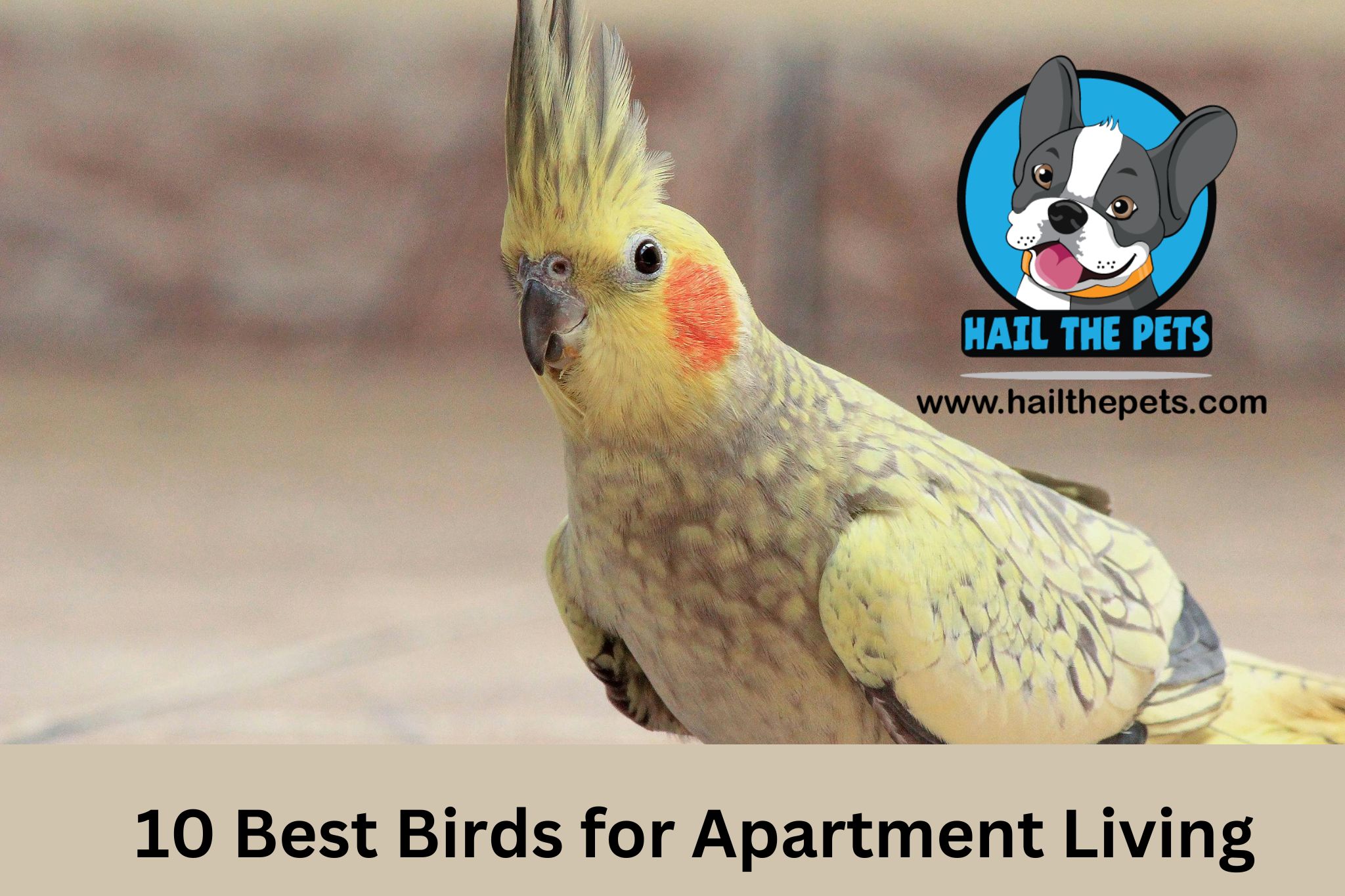Have you ever dreamed of having a feathered friend in your apartment? Living in an apartment doesn’t mean you can’t enjoy the wonderful company of birds. Best Birds for apartment living can bring joy, entertainment, and companionship to your cozy space.
This guide will assist you in selecting the ideal pet bird, whether you’re searching for species that are quiet or merely want to know which birds survive in apartments. Many people believe it’s difficult to keep a bird in an apartment, but with the correct choice and care, birds may flourish in tiny areas. The best birds for apartments vary in size, temperament, and level of maintenance.
Read more on: Discovering Birds with Red Heads: 5 Breeds to Know
Ready to discover which feathered friend might be the perfect addition to your apartment? Let’s explore the fascinating world of apartment-friendly birds and find your ideal match. From their care requirements to their unique personalities, we’ll cover everything you need to know to make your apartment a happy home for your new companion.
In this article, we’ll explore 10 best birds for apartment living. From quiet bird species to small birds and even peaceful larger birds, you’ll discover a variety of options suited for apartment dwellers. Let’s dive into this exciting journey to find your perfect companion that fits your lifestyle.
Check out: A Complete Guide on Lovebirds
Why Are Birds Perfect for Apartment Living?
Living in an apartment doesn’t limit your options for having a wonderful pet bird. When choosing birds for apartment living, several key factors determine success. The best birds for apartment living adapt well to smaller spaces while maintaining their happiness and health. But what exactly should you look for in an apartment bird?
Compact Size
Space is the first consideration. The majority of birds are ideal for apartment living because they are compact and can live in small areas. As long as their cage is the right size and supplemented, birds may live well in compact spaces, unlike larger bird pets who might need roomy rooms to wander.
Have a look at: Do Birds Eat Butterflies? An Insight into Nature’s Food Chain
Low Noise Levels
Noise level is another crucial factor. While all birds make some noise, quiet bird species are better suited for apartment living. Your neighbors will appreciate peaceful birds that don’t disturb the building’s tranquility. Remember, different birds are active at different times of the day, so consider your schedule too.
Low Maintenance
Birds require simple care routines, making them a great choice for busy individuals. Unlike some pets that demand constant attention, birds are relatively independent and easy to care for. They don’t need daily walks or extensive grooming, and their feeding routine is straightforward. A clean cage, fresh water, and a balanced diet of seeds, pellets, and occasional fruits and vegetables are enough to keep them healthy and happy.
Read more on : Birds 8 Quiet Pet Birds for Apartments and Small Spaces
Top 10 Best Birds for Apartment Living
Let’s explore the best 10 birds for apartment living with their characteristics, importance and lifespan.
1. Budgerigars (Parakeets)
Budgerigars, commonly known as parakeets, are fantastic birds for apartment living. These little birds have a lot of personality despite their little size. Because they are about 7-8 inches long, they are ideal for little areas.
Key Features
- They’re naturally social and love to interact
- Their chirps are generally soft and melodious
- They require a relatively small cage (minimum 18x18x18 inches)
- They’re excellent for first-time bird owners
- They can learn to mimic words and sounds
Know more about: Mystery Unravelled: 5 Black and White Birds with Mysterious Feathers and Behavior
Life Span
Budgerigars or parakeets are birds that can live between 5 and 10 years, though with good care, they can live up to 15 years. If only they can be cared for and given nutritious and balanced food, enough exercises and sufficient rest they would live long and would be happy.
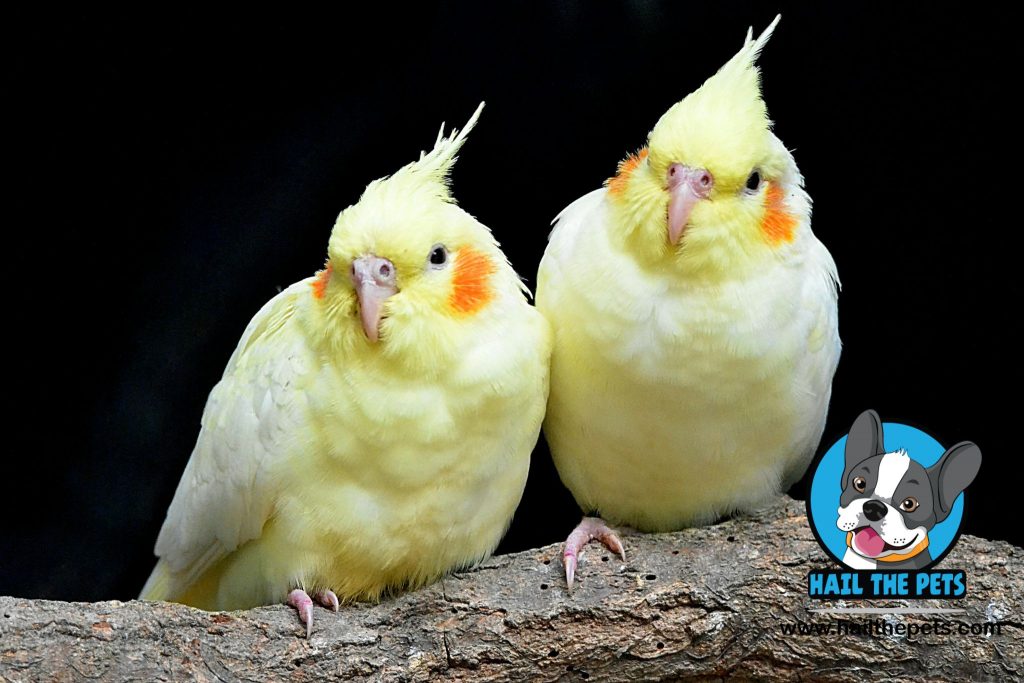
2. Cockatiels
One of the most common birds for apartment life is the cockatiel. Their lovely, quiet whistles and chirps make them perfect for close quarters. Because of their soft nature and moderate size, these amiable creatures make excellent companions.
Check out: Top 10 Pet Bird Species for Beginners: Easy to Care for and Friendly
Key Features
- Length: 12-13 inches
- Lifespan: 15-20 years
- Noise level: Moderate to low
- Personality: Sweet and affectionate
Why Choose a Cockatiel?
- They’re excellent whistlers rather than screamers
- They form strong bonds with their owners
- They adapt well to apartment routines
- They’re relatively low-maintenance
- They enjoy gentle interaction
Read more on: Pet Adoption vs. Buying a Pet: What You Need to Know to Make the Best Choice – August 2024
Life Span
Cockatiels, compared to most parrots, live for about 15 to 20 years, or even more, depending on how they are cared for. When they are well fed, have social contact, and free of stress most cockatiels can live into their teens or even their mid twenties so getting a cockatiel is getting a friend for a bird lover that will last for years and years.
3. Finches
If you would rather have a small bird that needs little handling, then a finch can nicely fill that bill. Finches are cute little balls of energy that only enhance the beauty of any apartment they are placed in.These birds are perfect for families which love birds but don’t want to interact with them physically. They are diurnal, pint sized birds that are known to roost in small flocks.
Check out: Exploring Unusual Bird Behaviour: Top Ten Popular Birds to Keep as Pets – January 2024
Key Features
- Very small space requirement
- Entertaining to watch
- Low maintenance needs
- Social with their own kind
- Gentle chirping sounds
Lifespan
Finches are a relatively long-lived group of small birds with common finches expected to live between 5 to 10 years with good care being given to them. An appropriate diet, a hygienic cage, lack of stress, and, in some conditions, owners can have finches that will live more than ten years, giving much pleasure in the company of the little birds.
4. Canaries
Canaries occupy a list of the most calm birds suitable for home dwellers and especially for apartment owners. These melodious singers add the soothing feeling of nature into any indoors but does not overpower the indoors.
Know more about: Top 10 Pet Bird Species for Beginners: Easy to Care for and Friendly
Key Features
- Beautiful songs that aren’t too loud
- Independent nature
- Bright, cheerful colors
- Easy to care for
- Perfect for busy apartment dwellers
Lifespan
Canaries are medium long-lived birds which are capable of living to be 10 to 15 years if they are looked after correctly. Giving them the foods, vitamins and appropriate water supply, a clean cage and a stress free environment all add up to a full healthy life for them.
5. Parrotlets
Parrotlets or powerhouses of personality when it comes to birds suitable for apartment residing. These small birds mean to make a point that big things do exist in small packages.
Read more: Discovering Birds with Red Heads: 5 Breeds to Know
Key Features
- Only 4-5 inches in length
- Big personality in a tiny body
- Relatively quiet compared to larger parrots
- Highly intelligent
- Great for limited spaces
Lifespan
Parrotlets are rather long-lived little birds, which can live, on average, fifteen to twenty years in case all the necessary conditions are met. This makes them a long-term friend, they provide for years of company and moments of shared moments with the owner.
6. Lovebirds
Lovebirds are actually great companions and do well in apartment living. From these individual bird personalities emerge their specific profile of behaviors during the day that makes them pleasant pets for someone that can contribute time and energy to interact with them.
Learn more on: Pet Adoption vs. Buying a Pet: What You Need to Know to Make the Best Choice – August 2024
Key Features
- Compact size (5-7 inches)
- Energetic and playful
- Bond strongly with owners
- Manageable noise levels
- Colorful appearance
Lifespan
Lovebirds have an average life expectancy of 10-15 years, provided these birds are well taken care of. Birds’ life span depends on nutrition, the place, and the general attention.
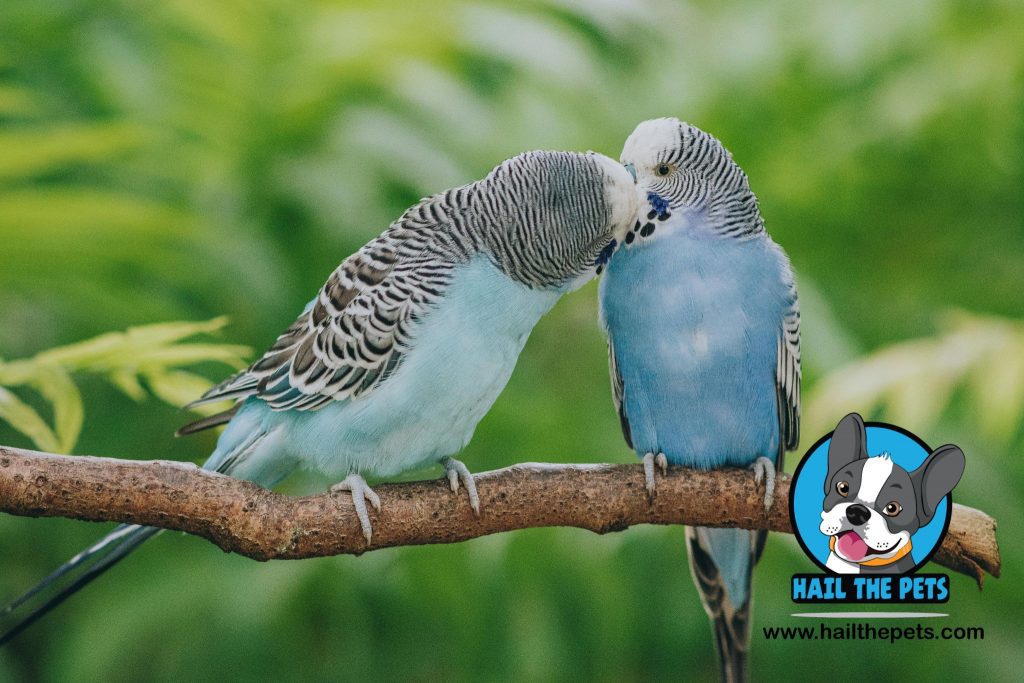
7.Pacific Parrotlets
Parrotlets are among the smallest parrots and due to this they will suit the apartments very well. Large bird species can in fact be loud but these are more playful and cheerful without being as loud as other bird species. Also termed pocket parrots, these birds are among the best birds for apartment living, and they are fairly large for their size.
Read more on: How to Choose the Right Pet Food for Your Furry Friend: A Comprehensive Guide to Optimal Nutrition
Key Features
- Smallest parrot species commonly kept as pets
- Quiet compared to larger parrots
- Strong personality
- Good for limited spaces
- Intelligent and trainable
Lifespan
A well taken care of Pacific Parrotlet will live for about 15-20 years. These small parrots are quite long-lived, especially for their size, therefore, these birds will make excellent companions for a long time.
8. Bourke’s Parakeets
When it comes to friendly, calm, and fairly unobtrusive small bird species, the Bourke’s Parakeets are amongst the most suitable for living in an apartment.
Check out: A Complete Guide on Lovebirds
Key Features
- Naturally quiet disposition
- Gentle temperament
- Beautiful sunset-colored plumage
- Easy to maintain
- Perfect for peaceful households
Lifespan
These birds have an average life expectancy of about 5-10 years but some may even outlive their average if well taken care of. Feeding them properly, making sure they have a large cage, keeping them intellectually stimulated, and getting them to the vet often will contribute to their having a long life expectancy.
Read more: Reptiles Wonder: Navigating the Diverse Realms of Earth’s Reptiles- January 2024
9. Diamond Doves
Diamond Doves are also quiet birds; they make a perfect choice for those interested to keep them in apartments. They are docile animals which if brought to a home will make it calm and peaceful without a doubt.
Key Features
- Very quiet nature
- Graceful movements
- Small size
- Low maintenance
- Gentle personalities
Check out: Dog Anxiety: Behavior, Symptoms, and Treatment
Lifespan
According to the information above, Diamond Doves have a life expectancy of between 10 to 15 years, when taken good care . Their cages should therefore be safe enough to enable them to have a comfortable life which will enhance their life span.
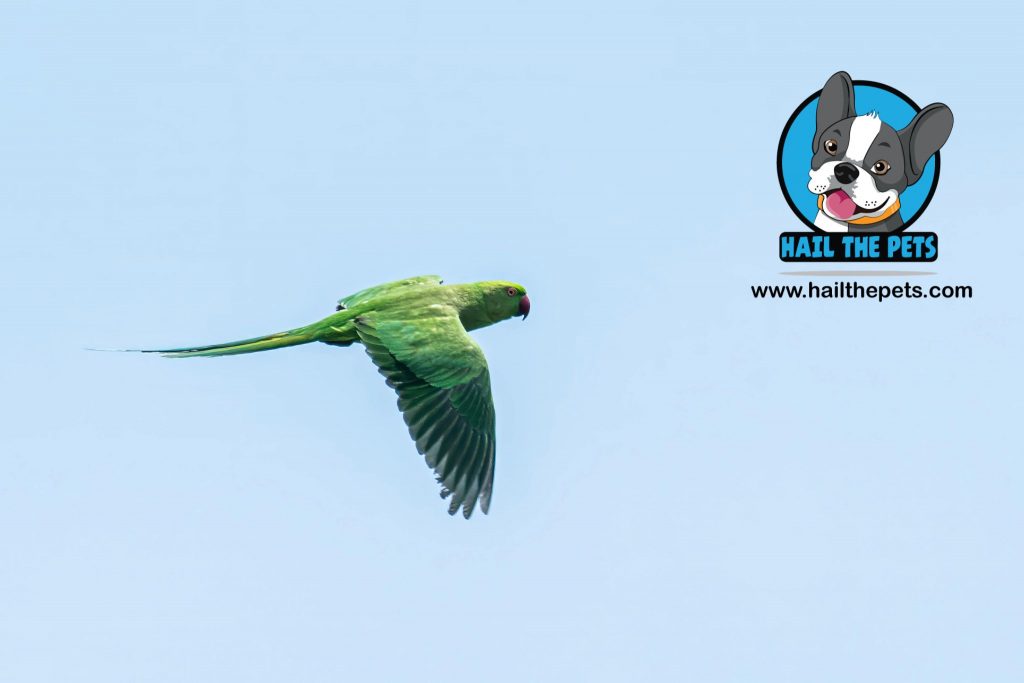
10. Green Cheek Conures
Of the larger bird options to consider for apartment living, Green Cheek Conures are the greatest and the perfect choice of persona for the apartment.
Key Features
- Moderately sized
- Playful personality
- Quieter than other conures
- Affectionate nature
- Good with families
Lifespan
With proper care and attention his expected life span is 15 to 20 years. Others could actually live several years longer, particularly where they are well fed, socialized, mentally active, and physically secure.
Know more on: Creating a viable dog schedule for your canine: A guide for busy pet owners- January 2024
Creating the Perfect Apartment Setup
Creating an ideal environment for birds for apartment living requires careful planning and setup. Here’s how to make your space bird-friendly:
Optimal Cage Placement
- Away from direct sunlight
- Draft-free location
- Away from cooking areas
- Good ventilation
- Safe from household hazards
Environmental Considerations
- Temperature control (68-75°F)
- Proper humidity levels
- Natural light exposure
- Air quality
- Noise control
Read more: How to Plan Your Pet for a Vet Visit: Essential Tips and Tricks for a Smooth Experience
Daily Care and Maintenance
Successful birds for apartment living require consistent care routines. Let’s explore the daily requirements:
Morning Routine
- Fresh food and water
- Quick cage spot-clean
- Uncover cage at consistent time
- Morning interaction
- Check bird’s general condition
Evening Routine
- Fresh water for night
- Evening meal
- Social time
- Cage cover at consistent time
- Final health check
Read more: Exploring Unusual Bird Behaviour: Top Ten Popular Birds to Keep as Pets – January 2024
Weekly Tasks
- Deep cage cleaning
- Toy rotation
- Perch cleaning
- Food dish sanitization
- Environment check
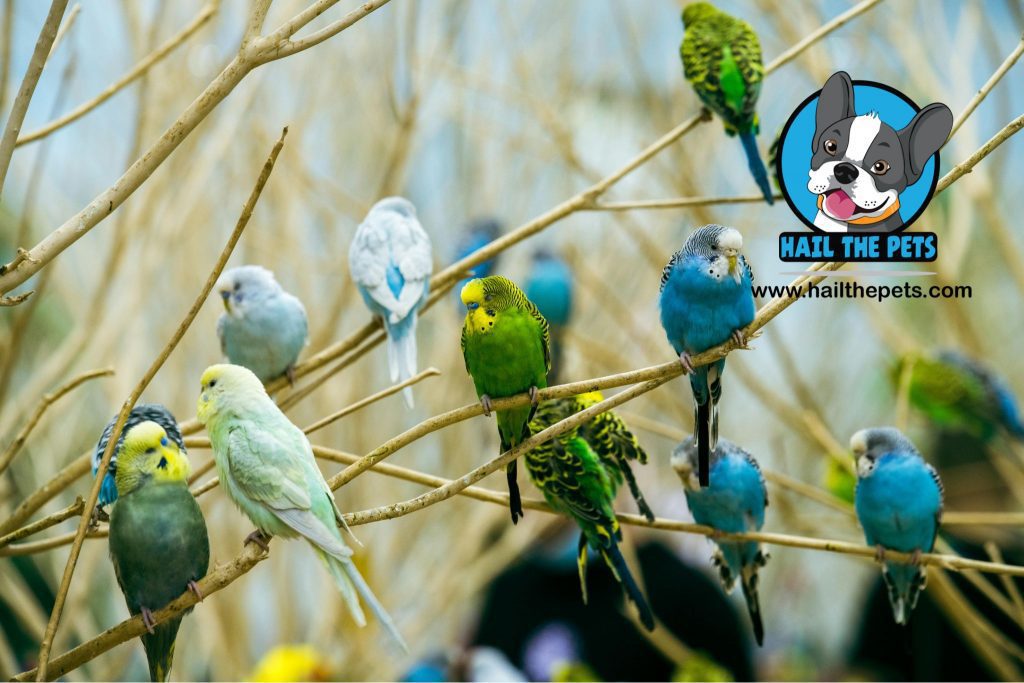
Health and Wellness Tips
Keeping quiet bird species healthy in an apartment setting requires attention to detail and preventive care:
Regular Health Monitoring
- Watch eating habits
- Monitor droppings
- Check feather condition
- Observe behavior changes
- Notice activity levels
Check out: Top 10 Rabbit Breeds: Find the Perfect Rabbit for Your Family
Finding Veterinary Care
- Locate nearby avian vets
- Schedule regular checkups
- Keep emergency contacts handy
- Learn basic first aid
- Create health records
Common Health Indicators
- Bright, alert eyes
- Clean feathers
- Active behavior
- Good appetite
- Clear breathing
Check out: Top 10 Pet Bird Species for Beginners: Easy to Care for and Friendly
Building a Bond with Your Individual Bird
Creating a lasting bond with your individual bird is one of the most rewarding aspects of having birds for apartment living. Let’s explore how to develop a strong, trusting relationship with your feathered friend.
Understanding Your Bird’s Personality
Every bird, even within the same species, has a unique personality. Some of the best birds for apartment living are naturally social, while others need more time to warm up to their human companions.
So what you have to do is to understand the bird’s body language.Notice those activities which are their favourite . Observe their daily patterns, check and respect their comfort zones.
Read more about: Understanding The Ecological Role Of Fisher Cat: Everything You Need To Know About These Fascinating Creatures
Starting the Bonding Process
When bringing home peaceful birds, remember that trust-building takes time:
- First Week
You should be very careful at first because birds are new to your apartment. Move slowly around them. Speak softly near the cage. In fact at start simply used to sit near the cage so that they must get comfortable with you.Maintain their proper feeding routine.
- Second Week
After checking their comfort zones, start continuing gentle conversations with your partner and watch for their positive responses. To make them more comfortable, start hand-feeding simple treats.
Check out: Poodle Grooming: Tips for a Beautiful and Healthy Coat
Training Fundamentals
Training quiet bird species requires patience and positive reinforcement:
Basic Commands
- “Step up” onto your finger
- “Step down” onto a perch
- Coming when called
- Target training
- Simple tricks
Training Tips
- Keep sessions short (5-10 minutes)
- Train at the same time daily
- Use favorite treats as rewards
- Stay positive and patient
- End on a good note
- Calm environment
Know more on: Pet Adoption vs. Buying a Pet: What You Need to Know to Make the Best Choice – August 2024
Handling Guidelines
Proper handling strengthens your bond:
Safe Practices
- Clean hands always
- Support their body
- Watch body language
- Use gentle movements
- Keep sessions short
Progress Signs
- Stepping up willingly
- Staying calm during handling
- Seeking head scratches
- Returning to you voluntarily
- Showing excitement for interaction
Read more on: Top 10 Must-Have Pet Supplies for Every Pet Owner – August 2024
Conclusion
The journey of keeping birds for apartment living can be incredibly rewarding when done right. From choosing the best birds for apartment living to creating the perfect environment, success comes from understanding your feathered friend’s needs and meeting them within your space constraints. Whether you choose little birds like finches or a larger bird like a Green Cheek Conure, each species lends its distinct charm to apartment living.
Remember that birds should be calm, and any of the ten indicated species may live in your apartment if properly taken care of. Spend time to bathe, groom and feed it properly plus ensure that your lifestyle is chained to the needs of your bird.
If done properly and with the right amount of dedication, the apartment may turn into a happy home for both you and the bird. By following these guidelines and choosing the right species, you’re well on your way to creating a harmonious home with your new avian companion.
